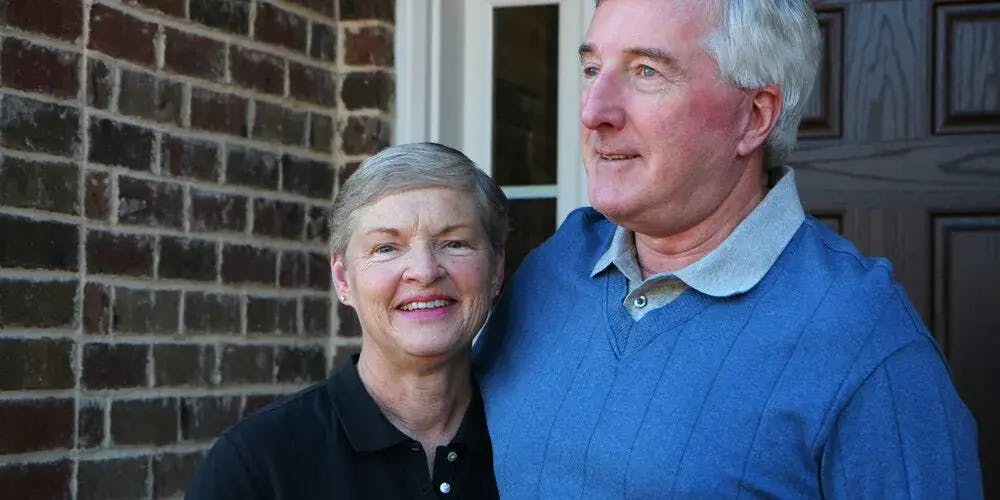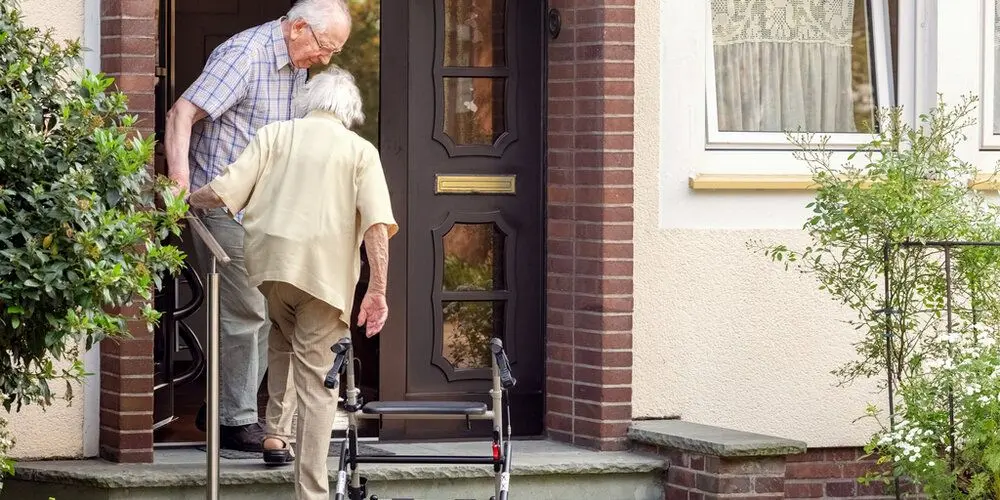How Do Care Home Fees Work With Jointly-Owned Properties?

Estimated Reading Time: 6 minutes
This article was reviewed by Sara Chapin, Director of Finance at Lottie, on 6th December 2024, to ensure accurate and trustworthy information for care seekers. Sara Chapin has been a Certified Public Accountant with the National Association of State Boards of Accountancy since 2017. Next review due December 2025.
When it comes to moving into a care home and paying care home fees, having a jointly-owned property can complicate the process of selling or giving up ownership of this property.
In some cases, you may need to sell this property to pay for care home fees, whereas you might be able to keep it in other cases.
That’s why we’ve created an article explaining how care home fees work with jointly-owned properties across various scenarios.
Kickstart your care search
Find the best care homes in your area through Lottie.
In this article:
- Who pays for care in the UK?
- What happens with jointly-owned property?
- Can your partner remain in their home?
- Can you gift your property to your children?
Who Pays For Care In The UK?
Whether you pay for care (such as in a care home or through home care) depends on how much your income and savings are worth (along with the value of your property and any other assets if you require care in a care home).
Below, we’ve listed the savings thresholds for each part of the UK. If your total savings are above the upper threshold, you won’t qualify for any means-tested support from your local council. You'll qualify for partial funding if your total savings are between the two thresholds. If your total savings are below the lower threshold, you’ll qualify for the maximum funding support.
There’s also support available for self-funders, including benefits such as Attendance Allowance.
England
Upper threshold: £23,250
Lower threshold: £14,250
Scotland
Upper threshold: £35,000
Lower threshold: £21,500
Wales
Upper threshold: £50,000 for care homes and £24,000 for home care
Lower threshold: N/A
Northern Ireland
Upper threshold: £23,250
Lower threshold: £14,250
If you require serious long-term medical assistance, you can be deemed eligible to receive NHS-funded nursing care, which doesn’t require a means test.
We’re here to help you find the right care home for you or your loved one. You can request a free list of care homes from our Care Experts, who will then share homes matching your budget, location and type of care needed. You can also search for care through our easy-to-use directory.
What Happens With Jointly-Owned Property?
When you move into a care home, several different things can happen with your jointly-owned property, and your property won’t always be included in a financial assessment calculation, particularly if you only require home care services.
If you’re looking to join a care home permanently, the financial assessment for care fees conducted by your local council may include a jointly-owned home of which you’re one of the owners. If you need money to pay for your care home fees, you may have to sell your property in order to cover the costs.
However, the value of your home is disregarded during a financial assessment if your partner continues living it. It may also be disregarded if a relative lives there. We have an article explaining whether your son or daughter can continue living in your home if you go into care.

You can also apply to your local authority for a Deferred Payment Agreement. Here, the local authority will lend you an amount of money (based on the value of your property) to pay for your care home fees. This amount will then be returned to your local authority from the sale of your estate after you pass away.
You can get in touch with your local council to determine whether you’re eligible for a Deferred Payment Agreement.
If you don’t need to sell your home to pay your care fees, e.g. if you’re receiving funding from your local council or if you have income that covers the care costs, there are several options for what you can do with the jointly-owned property. For example, your partner can continue living in it, or you can gift it to your children.
We’ve explained these two scenarios below.
Can Your Partner Remain In Their Home?
Your partner can continue living in your shared home, provided it isn’t included in the financial assessment. If it is included, they may have to move out if you need to sell the property to pay for self-funded care home fees.
Similarly, if you successfully apply for a Deferred Payment Agreement, your partner can continue living in the property.
If your property is included in the financial assessment, a 12-week disregard period begins when you move into a care home. This refers to the first twelve weeks in which you receive local authority-funded residential care. The value of your property won’t be counted within these first 12 weeks.
Can You Gift Your Property To Your Children?
If you plan on gifting your property to your children, there are a few things to consider. Many people do this because they believe it’ll allow them to avoid paying their care fees.
In theory, you can gift your property to your children. However, if your local authority believes you’ve done this to avoid paying care fees, they may class this as a deliberate deprivation of assets and still take the property’s value into account, meaning you’ll likely have to cover the full cost of your care home fees without financial support.
Family transactions often come under particular scrutiny during financial assessments for care fees.
People often enter a tenancy in common to avoid care home fees.
We’d recommend seeking professional legal advice before making any final decisions in this complex area.
Explore The UK’s Best Care Homes:
Use Lottie to find the best care homes in the UK by price, the care types available, facilities, activities and more:
Frequently Asked Questions
Am I responsible for my husband’s care home fees?
Although you can help pay for someone else’s care fees through a top-up, you never have to do so. This means that you aren’t responsible for paying care fees for your husband or wife.
If your loved one requires care, only their money and assets will be considered when assessing whether they qualify for help with paying for care fees.
Free Care Fees & Funding Email Course
Written by our team of experts and designed to help families fund later life care in England.




